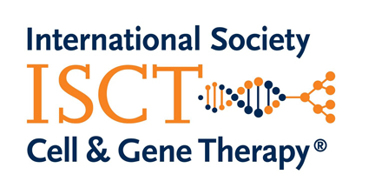ISCT On The Marketing Of Unproven COVID-19 Cell And Gene Therapies

By Erin Harris, Editor-In-Chief, Cell & Gene
Follow Me On Twitter @ErinHarris_1

The International Society for Cell & Gene Therapy (ISCT) has taken a stand against organizations marketing unproven COVID-19 cell and gene therapies. Prior to the current COVID-19 pandemic, ISCT identified that the unproven cell therapy market is currently worth up to $2.4 billion and involves approximately 60,000 patients annually, paying up to $40,000 per treatment. ISCT believes that during the current COVID-19 climate, the number of patients and the costs of these ‘treatments’ will considerably increase.
I caught up with Dr. Laertis Ikonomou, co-chair of the ISCT PTF and Dr. Bruce Levine, Barbara and Edward Netter Professor in Cancer Gene Therapy at the University of Pennsylvania and President-Elect of ISCT on the use of unproven and unethical cell and gene therapies in the age of COVID-19.
How is ISCT preventing the marketing of unproven COVID-19 cell and gene therapies?
Ikonomou: First and foremost, the ISCT is trying to raise awareness around direct-to-consumer marketing of unproven COVID-19 cell and gene therapies, given our long-lasting experience with counteracting the unproven cell & gene therapy industry. We are in constant communication with other scientific and clinical organizations and we continuously bring to attention of regulatory agencies businesses that appear to flout regulatory and ethical rules related to clinical translation.
What advice is ISCT providing to patients in order to validate COVID-19 treatments with their practitioners?
Levine: The following guidelines are useful in assessing scientific rigor and for differentiating between legitimate cell therapy medical services (including clinical trials and medical innovation) and fraudulent cell therapies.
- Peer review and transparency: consumers of cell therapy medical innovation should evaluate evidence from peer-reviewed publications, professional society presentations and scientific recognition. They should be encouraged to seek multiple [ expert] professional opinions and have all questions answered to their satisfaction.
- Safety and regulatory history: patients should consider the reputation of the investigator and clinic, as well as the record of disciplinary activities against these entities.
- Informed consent: patients should expect to be informed fully and accurately of the risks, benefits, costs, safety, compensation for injury, investigator conflicts of interest and alternative therapies, as a minimum.
What is ISCT’s message to the rest of the sector about unproven COVID-19 therapies?
Ikonomou: It is to be expected that the COVID-19 pandemic creates unprecedented anxiety and there is an urgent need for COVID-19 therapies and preventive interventions. It is then imperative that offered cell-based interventions follow established clinical translation pathways and do not take advantage of the desperation and devastation caused by the rapid spreading of COVID-19.
What are the signs associated with a dubious organization marketing fraudulent COVID-19 therapies?
Ikonomou: There are several well-documented signs of dubious cell-based interventions, in general, that are also associated with marketing of purported COVID-19 therapies. Such signs include, but are not limited to, exaggerated claims of safety and efficacy without strong clinical evidence, weak scientific rationale, and offering of the same products for a wide variety of indications, including COVID-19. A not obvious sign is use as a marketing tool of non-peer-reviewed clinical data, mostly coming from compassionate use of cell-based interventions and published in preprint servers to boost legitimacy of similar products offered through a direct-to-consumer model.
Please provide any additional actionable information Cell & Gene’s audience needs to know regarding this issue.
Ikonomou: There is a plethora of online resources regarding safe and effective cell and gene therapies with regulatory approval for various indications. For example, the ISCT Presidential Task Force (PTF) on the Use of Unproven and/or Unethical Cell and Gene Therapy website provides such resources as do several other organizations and scientific societies that operate in the cell and gene therapy space. Regulatory agency website, such as the US Food and Drug Administration (FDA), provide updates and warnings regarding potential therapeutic options for COVID-19 and should be consulted regularly.
